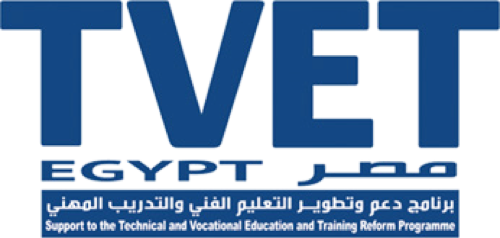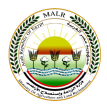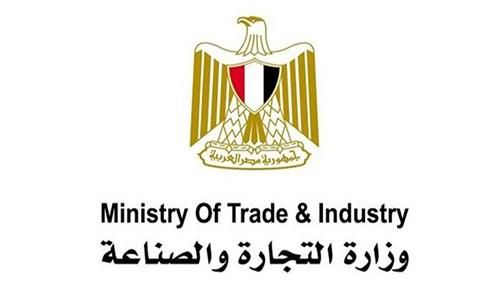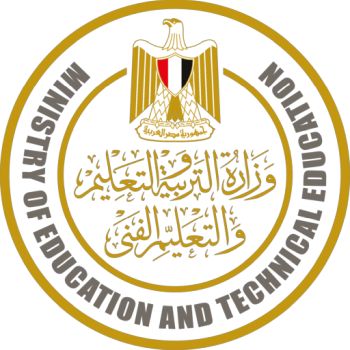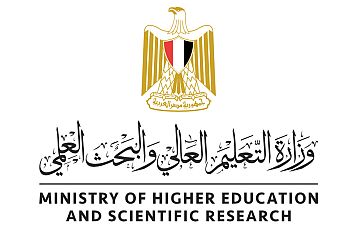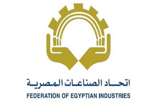Areas of Intervention
Governance &
Management
TVET Egypt sets and implements a clear governance structure, institutional framework, and regulatory policies to guide the formation of an integrated sector. This is done through the provision of technical assistance, system capacity building, laws and strategy development, fundraising and shifting the social perception of the technical and vocational training and education sector in Egypt.
Institutional Framework
Provide Institutional technical assistance and building capacities of key institutions involved in TVET policy cycle. The technical assistance includes all relevant institutional development, legal framework, good governance practices and sustainability issues.
Support the implementation of TVET multi-level governance structure at national, local and sectoral levels. The framework deals with TVET system fragmentation and highlights good governance practices through a clear identification of roles and responsibilities of relevant key players at central, sectoral and local levels.
Establishing of Sector Skills Council (SSCs) and assure its sustainability to act as a catalyst for bridging skills gap within the Egyptian labor market. Establishing of the SSCs Model aims at bridging the skills gap through effective involvement of business community (e.g. Federation of Egyptian Industries, Egyptian Federation for chambers of Tourism ..etc.) in TVET structure and delivery in Egypt, which in turn maintain the SSCs sustainability.
Support the formulation and activation of local TVET and Employment committees in different governorates, to be as a coordination mechanism among relevant stakeholders at the local level, in addition to match-making between local business communities and job seekers.


Institutional Framework
Provide Institutional technical assistance and building capacities of key institutions involved in TVET policy cycle. The technical assistance includes all relevant institutional development, legal framework, good governance practices and sustainability issues.
Support the implementation of TVET multi-level governance structure at national, local and sectoral levels. The framework deals with TVET system fragmentation and highlights good governance practices through a clear identification of roles and responsibilities of relevant key players at central, sectoral and local levels.
Establishing of Sector Skills Council (SSCs) and assure its sustainability to act as a catalyst for bridging skills gap within the Egyptian labor market. Establishing of the SSCs Model aims at bridging the skills gap through effective involvement of business community (e.g. Federation of Egyptian Industries, Egyptian Federation for chambers of Tourism ..etc.) in TVET structure and delivery in Egypt, which in turn maintain the SSCs sustainability.
Support the formulation and activation of local TVET and Employment committees in different governorates, to be as a coordination mechanism among relevant stakeholders at the local level, in addition to match-making between local business communities and job seekers.

Strategic Framework
- Develop a National TVET Strategy based on the State’s Sustainable Development Strategy (Egypt Vision 2030), and supporting TVET stakeholders in developing their own strategies and action plan in alignment with the TVET National Strategy.
- Developing a Sectoral Strategy for Human Resources Development in the tourism sector in Egypt, with collaboration with the Ministry of Tourism, and the Egyptian Federation for Tourism Chambers.
- Developing a National Strategy for improving the Social Perception and social image for TVET in Egypt.
- Develop TVET related policy papers, based on an experiential and participatory approach, to maintain the sustainability of policy formulation, implementation, and evaluation.
Legal Framework
- Developing of a draft for a unified TVET Act in Egypt. The framework includes the most recent TVET models emerged (i.e. dual system, applied technology schools, technological universities), reflecting the uniqueness of TVET system compared with the general education system, and focusing on more involvement for business sector and NGOs, as well as quality assurance and sustainability for TVET system.
- Provide technical support in drafting relevant legal and legislative documents (Laws / bylaws / decrees) as well as any needed amendments.
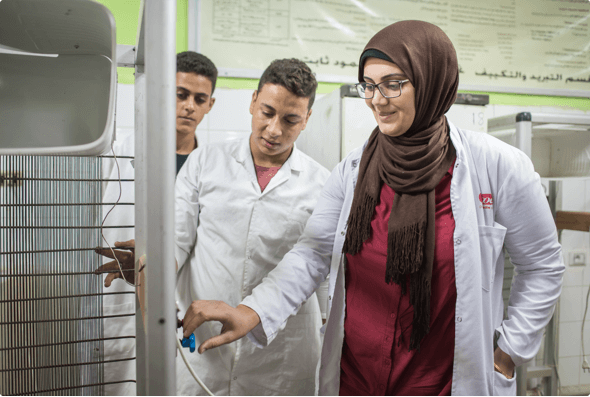

Legal Framework
- Developing of a draft for a unified TVET Act in Egypt. The framework includes the most recent TVET models emerged (i.e. dual system, applied technology schools, technological universities), reflecting the uniqueness of TVET system compared with the general education system, and focusing on more involvement for business sector and NGOs, as well as quality assurance and sustainability for TVET system.
- Provide technical support in drafting relevant legal and legislative documents (Laws / bylaws / decrees) as well as any needed amendments.

Financial Framework
Provide technical assistance and capacity building to key TVET stakeholders in the implementation of an integrated framework for Planning – Budgeting – Monitoring and Evaluation at different levels.
Stakeholders
Professional
Development
TVET Egypt maintains and raises the quality of education through using Competency-Based Education and Training (CBET) to ensure that curriculums are up-to-date and relevant to today’s rapidly developing labour market. The programme also does so through the building and maintaining a sound infrastructure of schools and educational institutions.
National Qualification Framework
In accordance with international best practices that deliver the most relevant material to technical students and graduates, TVET Egypt adheres to a framework which deploys a matrix of sector-specific curriculums for technical education. The National Qualification Framework (NQF) focuses on developing the skills and qualifications of teachers, trainers, school principals, quality assurance personnel, curriculum developers, etc.


National Qualification Framework
In accordance with international best practices that deliver the most relevant material to technical students and graduates, TVET Egypt adheres to a framework which deploys a matrix of sector-specific curriculums for technical education. The National Qualification Framework (NQF) focuses on developing the skills and qualifications of teachers, trainers, school principals, quality assurance personnel, curriculum developers, etc.

Capacity Building
The programme aims to enhance absorptive capacities through prioritizing the development of sustainable methods of capacity building for personnel such as TVET teachers, trainers, master trainers, and vocational training centre managers.
Quality Assurance and Policy Support
This aspect helps maintain a balance between keeping up with educational trends and preserving consistency; through bringing the latest global approaches in TVET quality assurance and providing capacity development for TSS and TC/TI that sets a unified benchmark for TVET curriculum accreditation to be implemented in the future by all relevant ministries.


Quality Assurance and Policy Support
This aspect helps maintain a balance between keeping up with educational trends and preserving consistency; through bringing the latest global approaches in TVET quality assurance and providing capacity development for TSS and TC/TI that sets a unified benchmark for TVET curriculum accreditation to be implemented in the future by all relevant ministries.

Equipment and Infrastructure Upgrades
Aligning with international TVET standards, there exists a commitment to upgrading and maintaining technical school infrastructure and equipment. This contributes to raising the overall level of facilities nationwide, in order to provide TVET students with a learning environment where they can fully apply their creativity and innovation. These upgrades are also a key element of the success of the Sustainable Development Strategy: Egypt Vision 2030.
A total of €12.5 million (11% of TVET Egypt total budget) was allocated by the European Union for the purchase, installation and operating training of state-of-the-art equipment in five key economic sectors. In addition, up to €46 million (39% of TVET Egypt total budget) from the Government of Egypt for infrastructure upgrades of technical schools, technical colleges, and vocational training centres.
Stakeholders
Transition to
Work
Through offering career guidance, entrepreneurship opportunities, apprenticeships, internships and supplying cutting-edge resources such as the Labour Market Information System (LMIS), TVET Egypt manages the smooth transition of students from education to employment. The programme does not only lead their integration into the workforce, but it also bridges the gap between the private sector’s demand for a higher skill standard and the need for an educated, qualified and skilled workforce.
Labour Market Information System (LMIS)
TVET Egypt contributes to effectively enhancing the educational knowledge base through a cutting-edge information hub that analyses trends in the Egyptian market under the cooperation of various ministries and government entities led by the Ministry of Planning, Monitoring and Administrative Reform. LMIS identifies the most prominent sectors and industries across Egypt’s governorates, and supports policymakers in strategic decisions related to, for instance, increasing the volume of schools in a specific area to meet the expected future demand for labour. It also provides employers with data that helps them drive their industries to places across Egypt with a higher TVET output of students who have received industry-specific training.
The LMIS is run by a team of economists and researchers who aim to optimize sectors resources nationwide through gathering raw data and making information available to all stakeholders.
To ensure sustainable development, the programme follows up on the advancement of TVET graduates in the private sector, where tracer studies are conducted to verify the efficiency of the training students received and their relevance to their jobs. Accordingly, this helps identify any gaps and use findings to improve the overall workings of the sector.


Labour Market Information System (LMIS)
TVET Egypt Egypt contributes to effectively enhancing the educational knowledge base through a cutting-edge information hub that analyses trends in the Egyptian market under the cooperation of various ministries and government entities led by the Ministry of Planning, Monitoring and Administrative Reform. LMIS identifies the most prominent sectors and industries across Egypt’s governorates, and supports policymakers in strategic decisions related to, for instance, increasing the volume of schools in a specific area to meet the expected future demand for labour. It also provides employers with data that helps them drive their industries to places across Egypt with a higher TVET output of students who have received industry-specific training.
The LMIS is run by a team of economists and researchers who aim to optimize sectors resources nationwide through gathering raw data and making information available to all stakeholders.
To ensure sustainable development, the programme follows up on the advancement of TVET graduates in the private sector, where tracer studies are conducted to verify the efficiency of the training students received and their relevance to their jobs. Accordingly, this helps identify any gaps and use findings to improve the overall workings of the sector.

Career Guidance
Services are provided to TVET students and graduates for their entire lifetime, to raise their self-awareness and gain more insight into their strengths and subjective occupational matches, in addition to information about various employment and entrepreneurship opportunities and career paths options. Moreover, students are introduced to programs on employment readiness that prepare them for their transition to work in partnership with EPP-GIZ and WISE-USAID.
Entrepreneurship and Innovation Opportunities
Innovation systems are being increasingly considered as one of the most efficient paths for economic growth. Innovation and Entrepreneurial education are highlighted by TVET Egypt and offered to students enrolled in various TVET institutions, alongside a unified curriculum developed by TVET Egypt and its partners such as ILO, GIZ, USAID, and UNIDO. Correspondingly, Innovation Gate and other similar competitions and calls for ideas provide students with a platform to present groundbreaking projects.


Entrepreneurship and Innovation Opportunities
Innovation systems are being increasingly considered as one of the most efficient paths for economic growth. Innovation and Entrepreneurial education are highlighted by TVET Egypt and offered to students enrolled in various TVET institutions, alongside a unified curriculum developed by TVET Egypt and its partners such as ILO, GIZ, USAID, and UNIDO. Correspondingly, Innovation Gate and other similar competitions and calls for ideas provide students with a platform to present groundbreaking projects.

Apprenticeships and Internships
The programme contributes to bridging the skills standards supply and demand gap through arranging agreements with the private sector to develop relationships that provide opportunities for TVET students to learn practical skills and the rapidly developing skills demands upon graduating. A total of €12.5 million (11% of TVET Egypt total budget) was allocated by the European Union for the purchase, installation and operating training of state-of-the-art equipment in five key economic sectors. In addition, up to €46 million (39% of TVET Egypt total budget) from the Government of Egypt for infrastructure upgrades of technical schools, technical colleges, and vocational training centers.
Employment Resources
TVET Egypt keeps technical students and graduates well-informed by identifying and sharing sustainable opportunities. Job fairs and career guidance workshops organized by the programme provide a gateway to learning more about the labour market and career development opportunities.
Technical schools affiliated with the Ministry of Education and Technical Education and vocational training centers affiliated with the Ministry of Manpower, Ministry of Trade and Industry’s PVTD and the Training Organization of Ministry of Housing and Reconstruction work together to collate employment opportunities and deliver them to graduates on a regular basis.


Employment Resources
TVET Egypt keeps technical students and graduates well-informed by identifying and sharing sustainable opportunities. Job fairs and career guidance workshops organized by the programme provide a gateway to learning more about the labour market and career development opportunities.
Technical schools affiliated with the Ministry of Education and Technical Education and vocational training centers affiliated with the Ministry of Manpower, Ministry of Trade and Industry’s PVTD and the Training Organization of Ministry of Housing and Reconstruction work together to collate employment opportunities and deliver them to graduates on a regular basis.

Skills Development Programs
The programme recognizes the benefits of inclusive growth through offering Skills Development Programmes (SDP), which are prepared and delivered by training providers and private sector companies’ training departments, to ensure the inclusion of vocational and technical competencies required by the private sector.
Stakeholders

